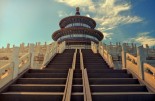Helen Thompson: Stable energy transition not possible without oil and gas
Helen Thompson: Stable energy transition not possible without oil and gas

This interview was written in Dutch. This article is an English translation.
A reliable energy network is a necessary condition for the energy transition to a world with sustainable energy. Oil and gas will therefore continue to be of crucial importance for some time to come.
By Joost van Mierlo
That is the message of Helen Thompson, Professor of Political Economy at the Cambridge University. She absolutely does not believe that developing countries such as South Africa and Indonesia can switch from coal-fired power plants to sustainable energy without the 'safety valve' of oil and especially gas. Thompson: 'Regardless of the price tag attached to such a transition, it is cynical to say the least that Western countries advocate this while they themselves have an energy network guaranteed by oil and gas.'
At a recent lecture at the London School of Economics, where she wrote a PhD thesis and where she is a regular guest, Thompson discussed the geopolitical aspects of the energy issue. In her view, the changes in supply and demand for the generation and distribution of energy are the main causes of economic turbulence.
Thompson: 'Today, the credit crisis of 2008 is often referred to as a breaking point in recent history. But I think the year 2005 was more important. That is the year in which China started to emit more CO2 than the United States, in which things went wrong in the Middle East with the Iraq crisis, in which China got a pipeline to Russia and in which the contract was signed for the now so problematic construction of the Nord Stream pipeline between Russia and Germany through the Baltic Sea.'
Thompson identifies four crucial developments shaping energy supply and demand today: the growing demand for energy from Asia – especially from China, the stagnating global oil production, the fact that Russia has come to view energy as a geopolitical weapon, and the problems related to the energy transition, in particular energy storage. In her lecture she explained these developments.
'It is sometimes forgotten, but until 1993 China was self-sufficient when it came to energy. The country actually had no choice, because the United States imposed an embargo on exports to China in the 1950s and 1960s.
When economic growth was stimulated under Deng Xiaoping from the mid-1980s, self-sufficiency was soon no longer possible. China approached this problem very strategically. It prevented us from becoming dependent on a particular provider. It made a strategic choice to strengthen ties first with Russia and more recently with Iran. You now see that China is strengthening its position within Iraq. This is becoming more evident now that the United States is withdrawing. China is already the country with the most investment in Iraq.
Oil and gas will continue to be of great importance in the coming decades. A smooth energy transition is in fact impossible without the 'assurance' of a stable supply of fossil fuels.
Until the 1960s, the United Kingdom was the dominant force in the Middle East. After that, that role was assigned to the United States. You can now see that China is becoming increasingly important there. This resulted, for example, in the recent treaty between Saudi Arabia and Iran, in which China actively mediated.
China's economic growth, as previously in the West, was made possible by burning coal. The country has emitted the most CO2 worldwide since 2005. This is all the more startling because in the mid-1990s China was not yet involved in the Kyoto treaty, the most important global climate agreement until the Paris agreement. The massive growth in coal use also has major implications for China's attitude to the energy transition.
China was late in switching to gas, but usage has increased rapidly since 2016. The disrupted gas market last year was mainly attributed to the war in Ukraine. Its role is of course important, but the emergence of China as a major consumer of gas has already caused disruptions.
In the corona year 2021, a year with lower economic growth, demand from China increased by 15%. There are liquefied gas tankers around the world that, while on their way to Europe, discovered half way through that prices were higher in Asia and China, turned around and shipped their cargo to Asia via the Panama Canal.
When the war in Ukraine came along, the gas supply from Russia came to a standstill and Europe suddenly needed more gas, there was a new interruption. China and Europe fought over available gas. A country like Pakistan became the victim of this. The contracts that that country had with gas distributors were torn through. It is an important explanation for the current unrest in the country.
A second crucial development is the fact that the supply of oil in particular is limited. In the period from 2005 to 2008 production even stagnated. With growing demand, especially from China and India, this caused prices to rise, peaking in mid-2008. It is impossible not to include these developments in explaining the credit crisis of that year.
Ties between India and Russia have strengthened over the past year. This can have far-reaching consequences for the political balance of power.
The major oil fields were discovered before the 1970s. They are now gradually exhausted. Average yields are declining by about 5% per year for most major fields.
The lagging supply of oil was probably one of the main causes of the war in Iraq. At the beginning of this century, that country still produced about 2.5 million barrels of oil per day due to overdue investments. The intention was to increase that to as much as 12 million barrels. That never worked out. Nearly 5 million barrels are now being produced and the role of China is becoming more important, as mentioned.
The United States and, in a sense, the world was saved from 2010 onwards by the production of shale gas and shale oil. It made the country the largest oil producer in the world again in 2016. But it also had major geopolitical consequences. Instead of a world with two big exporters, Russia and Saudi Arabia, we got a world with three big powers. The shale boom has worn off a bit at this point, but the three forces situation around fossil fuels is still relevant.
A third crucial development is around Russia. Russian President Vladimir Putin was not afraid to use oil and gas as a geopolitical weapon. From the moment he entered the Kremlin, his main goal was to restore, as far as possible, the lost Soviet Empire.
It was necessary to check the oil and gas fields for this. But that wasn't the only thing. Exports to numerous European countries went via Ukraine. The pipelines there were used by Russia to increase pressure on the Ukrainian government. In recent years there have been constant threats of shutting down the pipelines.
It caused numerous tensions, including in Europe. A country like Germany strengthened ties with Russia and welcomed the gas from Russia, resulting in the construction of the now questionable Nord Stream pipelines. However, countries such as Poland and the Baltic republics wanted to become completely independent from Russia at all costs and opposed such initiatives.
The United States and in a sense the world were saved from 2010 onwards by the production of shale gas and shale oil.
Since the start of the war in Ukraine, virtually all European ties with Russia have been severed. The European countries, in particular, have strengthened their relations with the Middle East. At the same time, you see that countries such as China and India have started buying more Russian oil and Russian gas. From China, this is mainly driven by the strategic goal of not becoming dependent on anyone, but the ties between India and Russia have been strengthened in the past year. This can have far-reaching consequences for the political balance of power and is something that the United States views with regret.
Finally, let me also say something about the energy transition. Oil and gas will continue to be of great importance in the coming decades. A smooth energy transition is in fact impossible without the 'assurance' of a stable supply of fossil fuels.
Germany is perhaps the country where the energy transition has been an important topic for the longest time. It is not for nothing that it is the country with the largest green party in the world. You see that the country is now in trouble because of the political decision to close nuclear power plants. They may remain open longer, although you see in France that confidence in nuclear energy is not boundless.
China formulated a policy in 2015 with the ambition to be a dominant force in the field of renewable energy by 2025. It's a comprehensive plan. It is not only about controlling the stocks of necessary metals, but the country also wants to play a dominant role in the infrastructure of sustainable energy, for example in the production of solar panels. And that's not all. China is now the largest producer of electric vehicles and there is every indication that this position will be strengthened in the coming years.
The Inflation Reduction Bill passed in the US last year should be seen as the US response to these initiatives. The dominant role that China aspires to cannot be seen in isolation from the current trade tensions between the US and China.
You now see that these tensions go hand in hand with the technological revolution that is taking place. This has direct consequences for the position of Taiwan, which plays a leading role in the production of semiconductors.'
According to Thompson, naming the areas of tension is not the same as predicting developments. But according to her, it is evident that the power struggle over the supply and demand of energy will also be the main cause of the outbreak of geopolitical conflicts this century. With the rise of China as a significant force in a world in which renewable energy is becoming more important, these power relations are only becoming more complex.
|
Helen Thompson Helen Thompson is Professor of Political Economy at Cambridge University. She is affiliated with Clare College there. She writes a biweekly column (These Times) in The New Statesman magazine and has a podcast (Talking Politics) with her Cambridge colleague David Runciman. Last year her book 'Disorder, Hard Times in the 21st Century' was published. |










